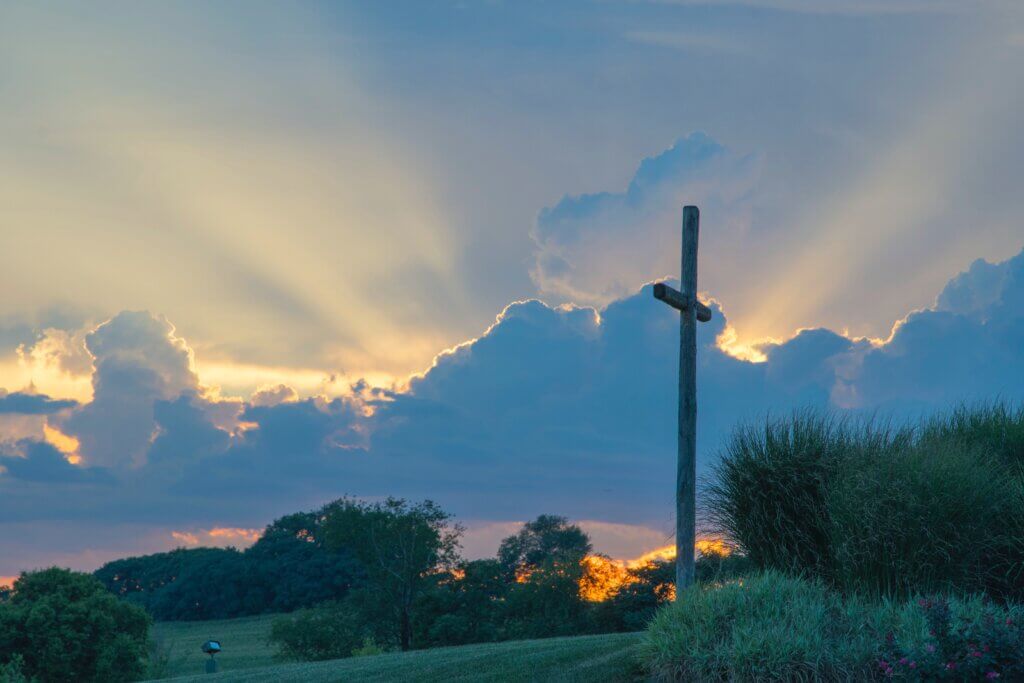Photo by David Dibert on Unsplash
The day began with a reading from Colossians 1. The Rev. Paul Donison, a trustee of the American Anglican Council, gave this moving reading of scripture that calls the Colossians to look towards Christ, away from the chaos around them. St. Paul reminds the Colossians that it is Christ living within them, through the Holy Spirit, that is a guarantee of the glory that will be revealed in them on the Last Day.
But what, exactly, is this glory?
The glory of Jesus is more than just how great Jesus is. It is an actual glory generated by the power of God, which is revealed in Christ, not just through the Transfiguration but ultimately in the Resurrection. Christ himself prayed in the Garden of Gethsemane, “And now, Father, glorify me in your presence with the glory I had with you before the world began” (John 17:5). This glory of Jesus, seen in Jesus, was his hope when he was surrounded by pain, torment, sin, and the devil. He knew who he was, despite what the world around him said. It is also our hope that we might become as he is when he is revealed to the world on the Last Day. “The glory you have given me,” Jesus prayed to the Father, “I have given to them.” He prayed for those who would follow him, asking God the Father to give to them everything he gave to Christ. It isn’t glory for glory’s sake, it is a glory meant to be given away. It is a glory born out of humility.
St. Paul’s call to the Colossians to behold Christ’s glory isn’t a call to simply look at Christ and stare, marveling at his greatness. It is to look upon Christ and find our hope in the face of suffering, knowing that this glory will be seen in us if we persevere. And this is the hope—that like Christ and in Christ and by Christ, we will share in the resurrected life when we are crowned with honor at the Last Day and enter into his glory. The catch, of course, is that we must first go through the cross before we receive the fullness of this glory. There is no resurrection without suffering, no entrance into life without death. That is why we need hope because of the multitude of sufferings we face in this world.
In a spiritual sense, GAFCON must continue to live in this reality as it seeks to help reform the Anglican Communion. GAFCON looks upon Christ and vehemently defends his Word. It calls the whole Anglican Communion towards repentance while moving away from heretical teachers and failing ecclesial structures and towards Christ and his clear, authoritative word. GAFCON provides oversight to all biblically faithful Anglican believers who are seeking to escape churches that have caved in to secular values and unbiblical teaching. But these leaders who glorify Christ must also press on in their mission to join Christ in that glory, not just to behold that glory but to move forward into glory themselves and bring a train of disciples with them. This will require leaders to share in the same sufferings of Christ (Phil 3:10) that he suffered on his way to glory. We behold his glory in order to join his glory and bring others to that glory. The final Resurrection is its fulfillment, but it can start here in the already/not yet of Kingdom glory. St. Paul says in 1 Corinthians that we move “from glory to glory” until we attain that final glory of sharing in his very nature.
Is GAFCON a group meant to look at Christ, remind people to behold him, and point out how churches like England and the Episcopal Church USA are turning away from him? Surely, this is part of the whole. But is it also ready to join Christ in that glory through the sacrifices that must be made for the sake of its brothers and sisters in the Global South? Are leaders in both GAFCON and Global South ready to embrace that hope of glory through the reality of suffering and self-sacrifice?
The Colossians were reminded to see Christ in glory and know that the glory they saw was theirs to attain. This was their hope in the midst of intense suffering, persecution, and worldly temptations. GAFCON was created in the midst of this kind of suffering that continues today. It has beheld the glory of Christ where that glory has faded in churches around the world. Now GAFCON must continue to operate as servants of those Anglicans who are biblically faithful wherever they may be. They must, as Archbishop Raffel from Sydney said, embrace humble servitude and true repentance for the sake of unity. How that will look like going forward is still unknown. But if such sacrifice and humility are embraced, there will be unity and a true glory that will be revealed in the Church both in this age and, more fully, in the age to come.


